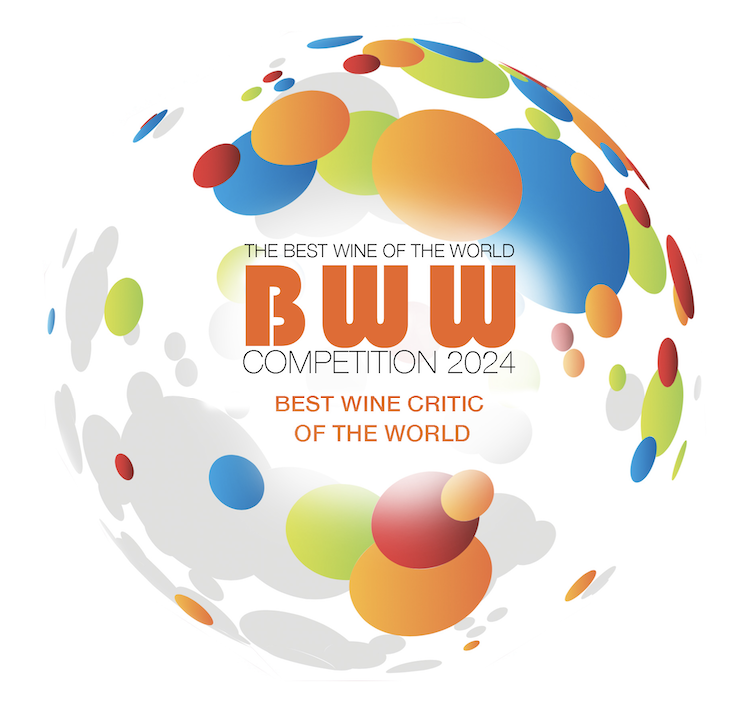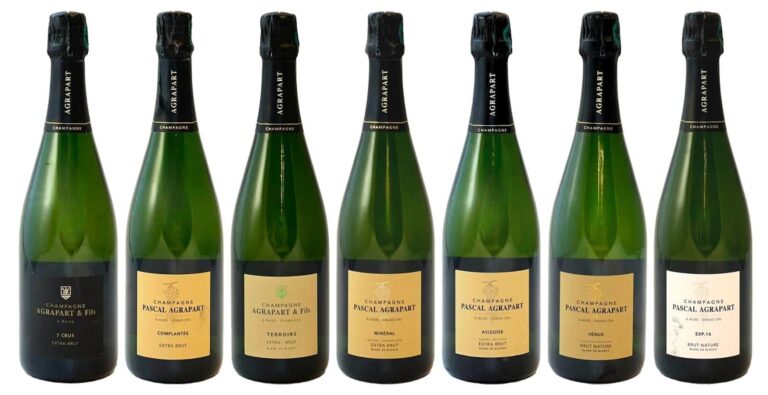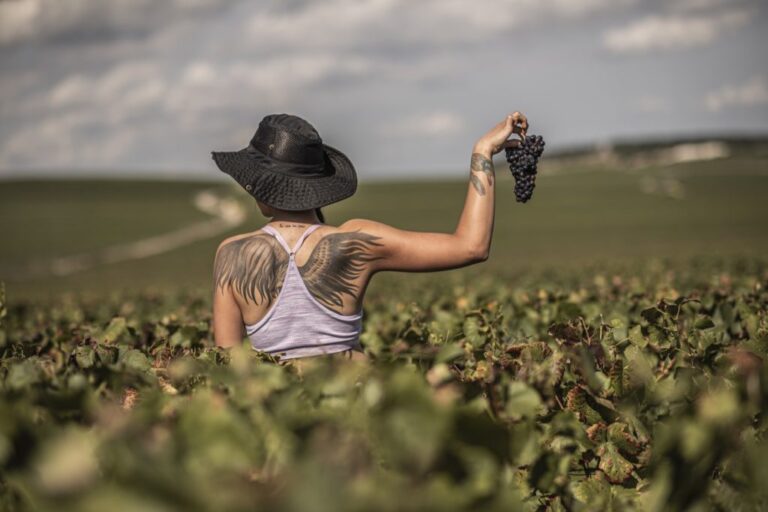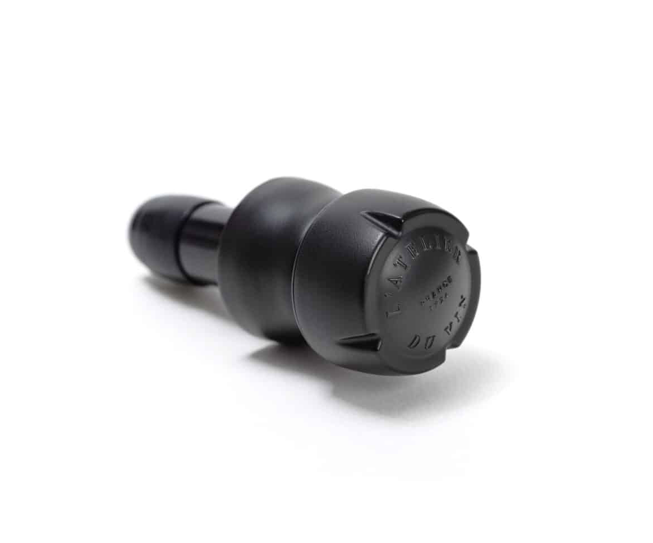Wine Professionals and wine lovers from all around the world choose, who is most reliable and influential wine critic in the world? [read the full champagne story]
Estimated reading time: 4 minutes

World’s Best Wine Critics Announced:
BWW2024 Reveals Top Wine Critics – a total of 1.6 million votes were cast!
The wait is over as the spotlight shines on the crème de la crème of the wine world – the esteemed wine critics chosen in the BWW2024 (Best Wine Critic of the World) competition. This unique event stands alone as the ultimate platform for recognizing the globe’s finest wine critics, where the victors are determined through a democratic process of voting on tastingbook.com.
Every tastingbook.com user had the power to cast one vote, making the selection process democratic and inclusive. With 80% of the voters being wine professionals, the results are a testament to the current perceptions of critic expertise, impartiality, and integrity within the wine community.
This year’s competition witnessed an unprecedented surge in participation, with over 1.6 million votes pouring in from 112 countries. The race was fiercely competitive, with the top spot changing hands multiple times throughout the voting period.
Jancis Robinson Earns World’s Best Title Deservedly!
Claiming the title of the world’s best critic is none other than the illustrious Jancis Robinson MW from United Kingdom. Renowned for her illustrious career and unwavering impartiality, Robinson’s victory resonates worldwide. Surprisingly, over 70% of her votes hailed from outside Europe, particularly from America, underscoring her global appeal.
Markus del Monego MW Steps Into the Spotlight!
In a surprising turn of events, the second-place spot went to Markus del Monego MW, a German critic who also holds the title of World’s Best Sommelier. Del Monego’s clear and professional reviews, coupled with his down-to-earth approach, garnered widespread acclaim. His victory was particularly celebrated by the tastingbook community, as he has been a trusted member on the platform since its inception. The majority of his votes, 75%, came from Europe, with the remainder from Asia and America.
Securing the third-place position is Korean American Wine Critic Jeannie Cho Lee MW. Lee’s comprehensive and professional wine assessments earned her high praise, with a significant portion of her votes originating from Asia and America.
Erin Larkin Surprisingly Tops as Australia’s Wine Critic!
In this very male-dominated field, women performed exceptionally well in this year’s competition, claiming the top spots in rankings 1, 3, 6, 12, and 13. Australian wine critic Erin Larkin, making her debut in the competition, surprised many by outshining established Australian critics and securing the 12th position. Larkin, the youngest finalist, recently joined Robert Parker’s Wine Advocate, having been a part of tastingbook for 8 years.
Other notable climbers include French critic Michel Bettane (4), Swedish critic Richard Juhlin (9), American critic Jeff Leve (10), German critic Axel Probst (15), and Danish critic Izak Litwar (22). However, some well-known critics experienced a decline in rankings compared to previous years, indicating a shifting landscape in the world of wine criticism.
As independent critics emerge triumphant in 2024, tastingbook had the opportunity to interview the award recipients on the challenges of being a critic, their influences, and the role of artificial intelligence in future wine assessments. Their insightful responses are featured alongside their introductions.
Tastingbook extends heartfelt congratulations to all the winners and finalists, each of whom has earned their place among the best of the best. Cheers to their continued contributions to the world of wine criticism!
[The Full list of the Winners]
Richard Juhlin won the category ‘Best Champagne Critic’ in 2020 & 2022 & was no12 over-all. With Your help – did he win in 2024?

What do you consider to be the most crucial aspects for success as a wine critic, and how do you believe you have succeeded in those areas?
As a wine critic, several crucial aspects contribute to success: A wine critic must have a well-developed palate to accurately assess and evaluate wines. Effective communication skills are vital for conveying evaluations and recommendations to readers or consumers. This includes the ability to articulate tasting notes, describe wine characteristics, and offer guidance on aging potential in a clear and engaging manner. Maintaining objectivity and consistency in evaluations is crucial for building credibility and trust among readers. A successful wine critic should be able to provide unbiased assessments regardless of personal preferences or external influences.
How does the evaluation of Champagnes differ from other wines, and what are your insights into the quality and price development of Champagnes in the future?
Evaluating Champagnes can differ from other wines due to several factors unique to the region and production methods:
Terroir and Climate: Champagne’s cool climate and diverse terroir can result in a wide range of styles. Production Methods: Champagne involves considering how well these production methods contribute to the overall quality and complexity of the wine. Acidity and Effervescence: Champagne is known for its high acidity and fine, persistent bubbles. Evaluating Champagne involves assessing the balance between acidity, fruitiness, and effervescence, as well as the texture and mouthfeel of the wine. Aging Potential Champagne often benefits from extended aging, which can enhance its complexity and develop tertiary aromas and flavors. Evaluating Champagne involves considering its aging potential and how well it will evolve over time.
In terms of the quality and price development of Champagnes in the future, several factors may influence trends:
Climate Change: Climate change could impact grape growing conditions in Champagne, potentially affecting grape ripeness, acidity levels, and overall wine quality. Champagne houses may need to adapt their vineyard management practices to mitigate the effects of climate change and maintain wine quality.
Market Demand: Demand for Champagne is influenced by factors such as economic conditions, consumer preferences, and trends in the wine market. As emerging markets continue to grow and consumer tastes evolve, there may be shifts in demand for different styles and price points of Champagne.
Supply and Production Costs: Champagne production is limited by strict regulations and labor-intensive production methods, which can affect supply and production costs. Changes in production costs, such as labor or grape prices, may impact Champagne prices in the future.
Investment in Quality: Many Champagne houses are committed to producing high-quality wines through investments in vineyard management, winemaking technology, and cellar aging. Continued investment in quality could lead to further improvements in Champagne quality and reputation.
Overall, while it’s challenging to predict specific trends in Champagne quality and prices, ongoing investments in quality, shifts in market demand, and the impacts of climate change are likely to shape the future landscape of Champagne production and consumption.





